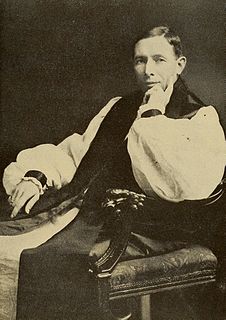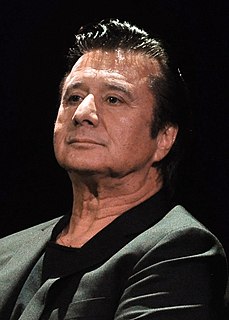A Quote by Bertrand Russell
...the nonexistence of God makes more difference to some of us than to others. To me, it means that there is no absolute morality, that moralities are sets of social conventions devised by humans to satisfy their needs.
Related Quotes
My view on well-being and fulfillment comes from Maslow and positive psychology, and that is that you're satisfying three sets of needs. First need is physiological and safety needs: Got to satisfy those first. And the second is you got to satisfy your community needs because we're social animals, and if we don't have that, we're empty and we don't have people to share knowledge and bounce things off of, and challenge ourselves. And then the third is the idea is to find a calling.
My version of relativism is pluralistic and attributes functions to morality that in combination with human nature place limits on what could count as a true morality. Unlike many other relativists, I do not hold that people are subject to a morality because they all belong to a certain group. That is, I don't hold that being a member of a group makes one's subject to some set of generally accepted norms. What is true is that others around us teach us morality and moral language, so they inevitably influence us.
Humans suffer from self-centred notions as to the nature of life. Humans assume that alien life forms should conform to standards that match our own, including logic and morality. Even among humans, morality is ignored when expedient. Why should we expect more from an alien life form than we demand from ourselves?
Compassion- which means, literally, "to suffer with"- is the way to the truth that we are most ourselves, not when we differ from others, but when we are the same. Indeed the main spiritual question is not, "What difference do you make?" but "What do you have in common?" It is not "excelling" but "serving" that makes us most human. It is not proving ourselves to be better than others but confessing to be just like others that is the way to healing and reconciliation.
Ah! In fact there are two moralities ... The petty one, the conventional one, the one devised by men, that keeps changing and bellows so loudly, making a commotion down here among us, in a perfectly pedestrian way ... But the other one, the eternal one, is all around and above us, like a landscape that surrounds us and the blue sky that gives us light.
Everyone makes a difference. Someone who does something for others makes a big difference. A person who has no self-interest to do things for others makes a bigger difference. But, one who does everything for everyone for the sake of humanity without vested interest makes a real big difference for sustainability.
It is not just that we exist and God has always existed, it is also that God necessarily exists in an infinitely better, stronger, more excellent way. The difference between God's being and ours is more than the difference between the sun and a candle, more than the difference between the ocean and a raindrop... God's being is qualitatively different.
We can cooperate more easily with those who more easily intelligible to us, who are more familiar to us. But the advantages of specialization of labor often push us in the direction working with people who have different strengths and viewpoints than we do. I think that this is one major reason why moralities are always subject to change, because some of the people we cooperate with are going to be different from us in ways that often lead them to have different value orientations than we have; and interacting with them can change us.

































